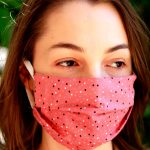When you hear the word menopause, your thoughts most likely go to women. However, the reality is that men can be affected by their own type of menopause, or andropause, as well.
 Male menopause doesn’t cause the same symptoms as it does in women. Men affected by it won’t suffer from hot flashes or having their hormones plummet in a short period of time, and it obviously doesn’t signal the end of ovulation.
Male menopause doesn’t cause the same symptoms as it does in women. Men affected by it won’t suffer from hot flashes or having their hormones plummet in a short period of time, and it obviously doesn’t signal the end of ovulation.
The term “male menopause” actually characterizes the age-related hormonal changes that gradually take place in all men as they age. In particular this natural transition affects a man’s testosterone levels, which is why the medical community also refers to this stage as testosterone deficiency. Some men who experience more severe symptoms may experience them due to health issues—such as an existing health condition or certain medications taken for an unrelated condition, alcohol or drug abuse, poor diet, or a thyroid condition.
Andropause may happen so gradually or subtly that some might not even notice the transition taking place at all. However, for other men, especially those with poor diets and activity levels, they may experience a more severe variety of male-specific symptoms—including a reduction in libido, sexual function, energy levels, and irrational mood swings.
Andropause can begin as early as 40 and end as late as 70. Diet, lifestyle and genetics play a significant role in influencing its commencement and duration.
Testosterone naturally declines with aging, but the decline can begin as early as age 30 with many not noticing the effects until their 40’s and 50’s.
Symptoms vary according to the individual and can include:
- Hormonal decline can happen quickly for some while duration can last much longer for others.
- Sexual function such as a lower sex drive, erectile dysfunction, loss of libido and infertility can occur.
- Sleep patterns can be affected by way of insomnia, trouble falling or staying asleep or significant changes in sleep patterns.
- Low energy and fatigue.
- Emotional changes can be impacted by reduced hormones and can result in feelings of sadness, depression, anger, memory loss and a loss of self-confidence.
- Physical appearance can be impacted by weight gain (thickening around the midsection), deterioration of muscle tissue and bone loss, shrinking testes, gynecomastia (swollen breasts) and loss of body hair.
It starts with a healthy mind set
Having optimism and establishing a mindset of believing in yourself are good first steps. Having a negative attitude will only result in you seeing things to complain about, no matter how perfect the day has been. Negative thinking is rampant, and depression tends to be higher in the older population. If you suffer from depression or you had negative events such as accidents or abuse in the past, it’s important to do some house cleaning. Don’t be hesitant about seeking professional help and counseling from a health professional to help you build up your self-esteem.
Stress management
 As aging occurs, the need to be aware of stress in your life becomes more important. You may have been accustomed to having lots of energy when you were in your child rearing years or in your active professional career. Often we do not even notice that there may be stress in our lives. But your adrenal glands know. Hormones need to be in balance. But cortisol, which is produced in your adrenal glands, is different from the menopause/andropause hormones. Corticotrophin-releasing hormone (CRH) from the hypothalamus and adrenocorticotrophin hormone (ACTH) from the pituitary gland are the rulers of the adrenal glands. And it is how you handle stress when you are in your 40’s, 50’s and 60’s which will determine whether you come down with adrenal fatigue, various degrees of adrenal insufficiency or not. Hypnosis and regular patterns of sleep are proven methods to overcome any stress related issues.
As aging occurs, the need to be aware of stress in your life becomes more important. You may have been accustomed to having lots of energy when you were in your child rearing years or in your active professional career. Often we do not even notice that there may be stress in our lives. But your adrenal glands know. Hormones need to be in balance. But cortisol, which is produced in your adrenal glands, is different from the menopause/andropause hormones. Corticotrophin-releasing hormone (CRH) from the hypothalamus and adrenocorticotrophin hormone (ACTH) from the pituitary gland are the rulers of the adrenal glands. And it is how you handle stress when you are in your 40’s, 50’s and 60’s which will determine whether you come down with adrenal fatigue, various degrees of adrenal insufficiency or not. Hypnosis and regular patterns of sleep are proven methods to overcome any stress related issues.
Sometimes more effort is needed to rebuild the adrenals. Hormone therapy can also be very effective for some but not all men who are experiencing andropause symptoms. Please note that these come with their own unique side-effects. Your medical health care provider can provide you with further information and support regarding this.
Sleeping Habits
Sleep patterns can be affected by andropause. Self-hypnosis and hypnosis recordings can assist with facilitating better sleep habits.













